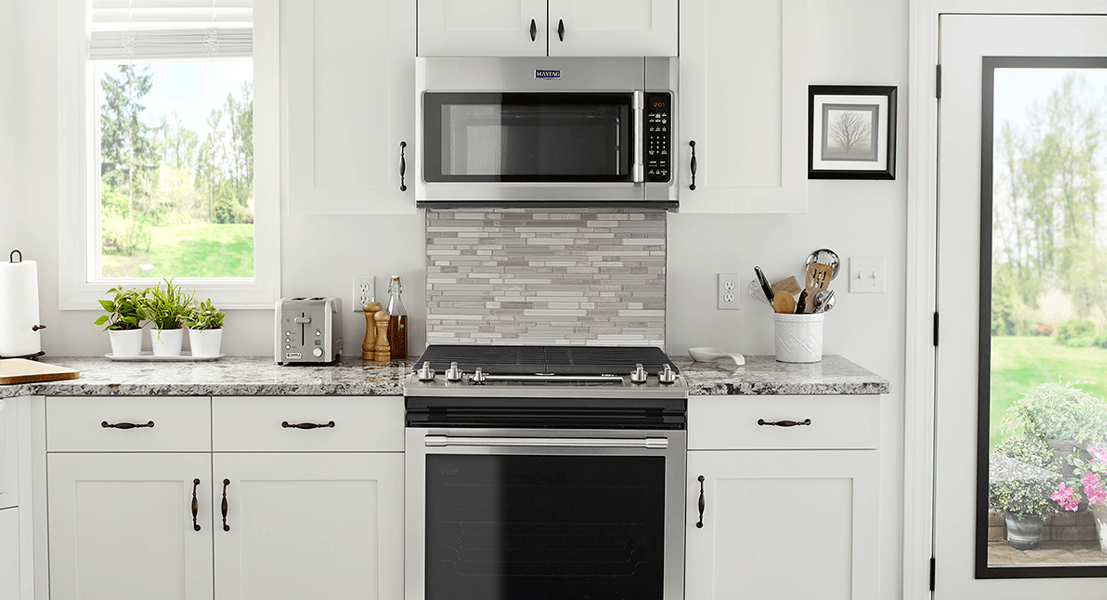While some household chefs swear by gas kitchen ranges, others are dedicated to electric ones to prepare healthy and delicious meals for friends and family. There are advantages and disadvantages to each type of stove and also unique factors of each type that should weigh into a buying decision.
Here is a comparison of gas vs. electric stoves and what homeowners should know before making this important type of kitchen upgrade.
Gas Kitchen Ranges
With gas kitchen ranges, you’ll get ceramic cap burners, removable grates, and precision control over your level of flame. Gas kitchen ranges are favored among people who love to cook because they offer a constant flame that you can adjust and settings that are easy to see and change.
Gas stoves cook food evenly and thoroughly for delicious homecooked meals. Gas kitchen ranges also allow you to do more with your culinary aspirations and be more successful with certain types of food. However, your home needs to be already set up to provide natural gas to avoid costly installation fees. If your home already has natural gas, then the cost of operation tends to be lower than for electric kitchen ranges. Yet, gas stoves can be more expensive to purchase initially.
Electric Kitchen Ranges
Meanwhile, electric stoves feature radiant elements that heat pans through conducted electricity and metal coils. The cooking surface is ceramic and smooth, which works well for boiling water, for example. Electric kitchen ranges offer a sleek and modern appearance that looks great in many kitchens. They are easy to clean after spills, easy to operate, and sometimes less expensive than gas stoves to buy and install. Electric stoves provide a flat and stable place to cook in pots and pans, and they may even include valuable storage space under the stove.
Some families consider electric stoves to be safer than gas stoves if there are young children in the home. This is because gas stoves use an open flame, which can subject children to a greater risk of burns, and also because of the risk of gas leaks. Electric kitchen ranges are more ideal for amateur cooks or people who don’t cook often because they tend to cook food more slowly and don’t allow cooks to put food items right on the burner for extra charring.
Dual Fuel Kitchen Ranges
It’s also important to make a distinction between dual fuel kitchen ranges and gas ranges because these types of stoves have gained popularity among homeowners. Dual fuel kitchen ranges combine the best of both worlds – a fast-cooking gas cooktop and an even-baking electric oven. It is considered to be a highly efficient range type that offers precise temperature control and convection features.
However, a big difference between dual fuel kitchen ranges and gas kitchen ranges or electric ranges is the price. Dual models tend to be significantly more expensive than the other types because of their extensive features that are beloved by busy cooks. However, dual kitchen models are wonderful for homeowners who enjoy baking and want precise temperature control in their culinary endeavors.
Making a Decision about a Gas Versus Electric Range
As you shop for new kitchen cooking appliances, the top things to consider are fuel type, cooking capabilities, high-tech features, cost, color, size, and safety. The Brick has a large selection of electric kitchen ranges, gas kitchen ranges, and dual fuel kitchen ranges to suit every kitchen style and budget, and we even allow you to filter stoves online by Energy Star ratings and what’s on sale.
Whether you’re looking for a black, white, or stainless-steel stove, or looking for a specific brand you trust, we’re here to help you find the best stove for your needs and wants. Visit our website to narrow down your stove preferences for either gas or electric ranges, and stop by a Brick location near you to see them in-person and learn more about their pros and cons from our expert staff.




